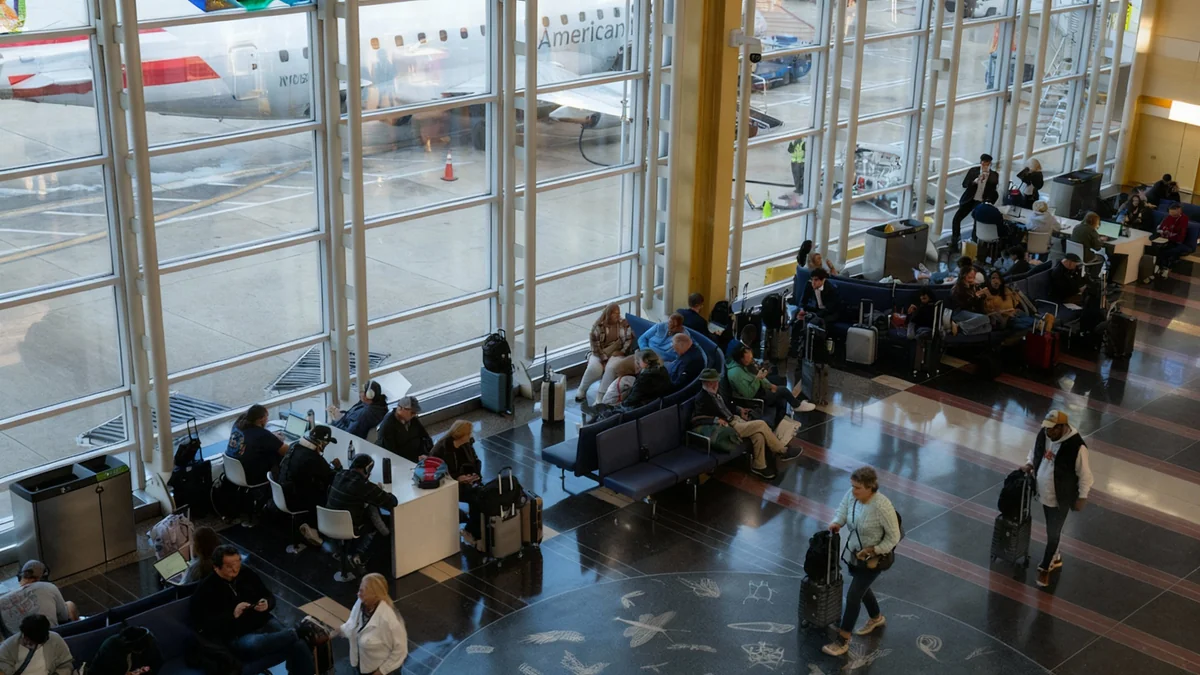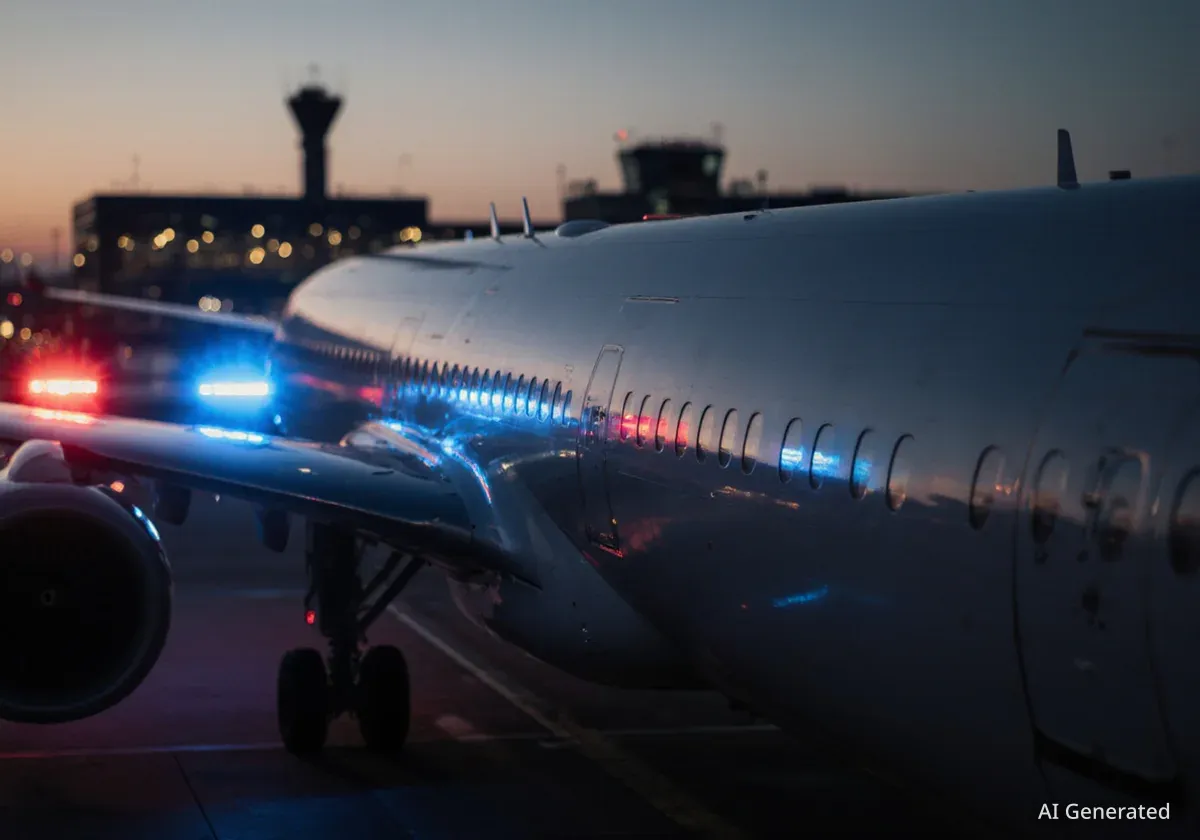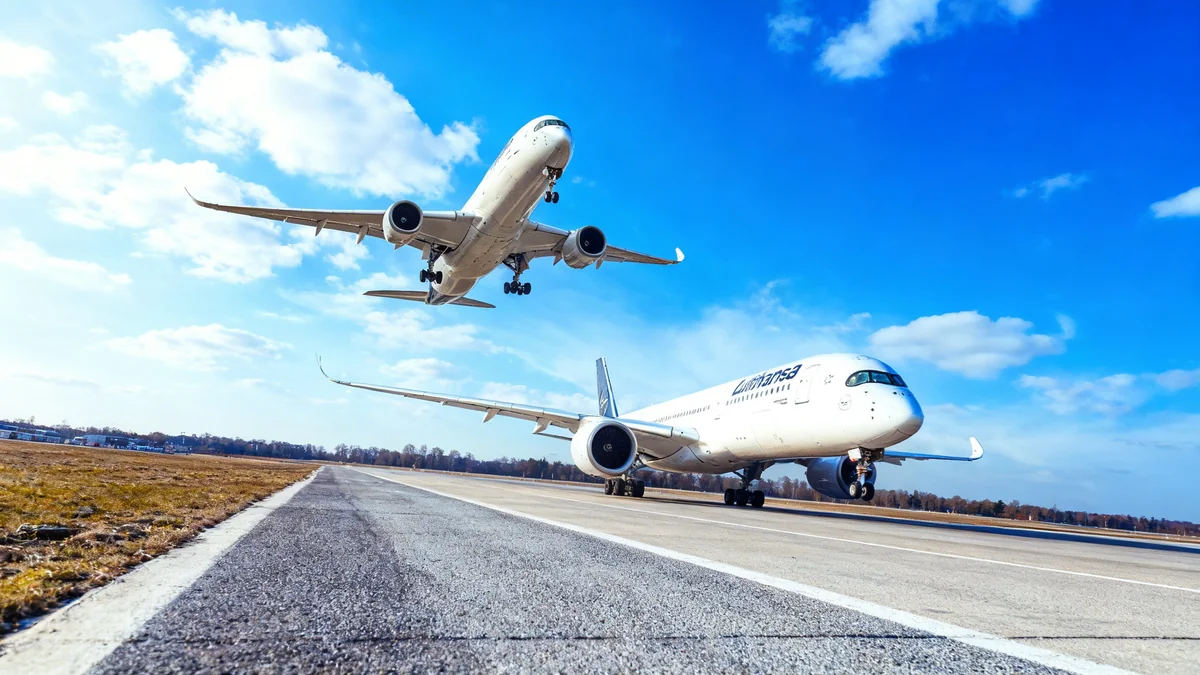Hundreds of thousands of air travelers faced significant disruptions on Sunday, with over 2,800 flights canceled and more than 10,200 delayed across the United States. This marks the worst day for air travel since the government shutdown began, intensifying concerns about holiday travel as Thanksgiving approaches.
The Federal Aviation Administration (FAA) has mandated flight reductions at 40 major airports due to ongoing air traffic control (ATC) staffing shortages. This situation is expected to worsen, with Transportation Secretary Sean Duffy warning of severe impacts on Thanksgiving travel.
Key Takeaways
- Over 2,800 flights canceled, 10,200 delayed on Sunday.
- FAA mandated flight cuts at 40 airports due to ATC shortages.
- Thanksgiving travel expected to be severely impacted.
- Government shutdown, now 40 days, linked to controller staffing issues.
- Economic impact could reach $285 million to $580 million daily.
Escalating Air Travel Chaos
The widespread cancellations and delays on Sunday followed similar issues on Saturday, which saw 1,550 flights canceled and 6,700 delayed. On Friday, 1,025 flights were canceled and 7,000 delayed. This trend highlights a rapidly deteriorating situation in the nation's air travel system.
The FAA instructed airlines to cut 4% of daily flights starting Friday. These reductions are set to increase, reaching 6% by Tuesday and a full 10% by November 14. This means fewer flights will be available for travelers in the coming days.
"It's only going to get worse... the two weeks before Thanksgiving, you're going to see air travel be reduced to a trickle," Transportation Secretary Sean Duffy stated on CNN's "State of the Union" program.
Impact on Major Airlines
Major carriers are already adjusting their schedules. United Airlines, for example, plans to cut 190 flights on Monday and 269 on Tuesday. American Airlines has urged quick approval of a Senate bill aimed at ending the government shutdown, citing the hardships faced by federal aviation workers and customers.
The four largest carriers—American Airlines, Delta Air Lines, Southwest Airlines, and United Airlines—are collectively cutting about 700 flights as part of the initial reduction phase. These cuts are directly linked to safety concerns arising from the controller shortages.
Government Shutdown Fuels Staffing Crisis
The current government shutdown, now in its 40th day, is a primary factor behind the air traffic control staffing crisis. Air traffic controllers, like other federal employees, have not received pay for weeks. This has led to a significant increase in retirements among experienced controllers.
Controller Shortage Deepens
Secretary Duffy reported that the FAA is currently short by 1,000 to 2,000 air traffic controllers. Before the shutdown, about four controllers retired daily. This number has now surged to between 15 and 20 retirements per day.
An estimated 13,000 air traffic controllers and 50,000 security screeners are working without pay during the shutdown. This situation creates immense pressure on those still on the job, leading to fatigue and potential safety risks.
Safety Concerns Mount
Republican U.S. Senator Ted Cruz reported that the FAA has received over 500 safety reports from pilots since the shutdown began. These reports detail mistakes made by air traffic controllers due to fatigue, underscoring the serious safety implications of the current staffing levels.
Airline officials have privately expressed alarm about the system's ability to function if staffing issues continue to worsen. The numerous delay programs make scheduling and planning flights nearly impossible for airlines.
Thanksgiving Travel and Economic Repercussions
Thanksgiving is one of the busiest travel periods in the U.S., with millions typically flying to celebrate. Secretary Duffy warned that many travelers might not be able to fly if the shutdown continues, as flight availability will be severely limited.
Economic Impact
White House economic adviser Kevin Hassett warned that the air travel disruptions could negatively impact U.S. economic growth. He suggested that if people are not traveling during Thanksgiving, the fourth quarter could see negative economic growth.
Airlines for America, an industry group representing major carriers, estimates that staffing issues have already disrupted the travel plans of more than 4 million passengers since October 1. The daily economic impact on the U.S. could range from $285 million to $580 million by next Friday.
The U.S. Senate voted to advance a bill to end the government shutdown late Sunday. However, this bill still requires approval from the House of Representatives and the President's signature, a process that could take several days. Secretary Duffy has stated he will not rescind flight cuts until controllers return to work and safety data improves.
Looking Ahead: Uncertain Skies
The immediate future for air travel remains uncertain. The escalating flight reductions, coupled with the ongoing government shutdown and controller retirements, paint a challenging picture for travelers.
Passengers planning travel in the coming weeks, especially around Thanksgiving, should prepare for significant delays and potential cancellations. Checking flight statuses regularly and having alternative travel plans will be crucial.
- Check Flight Status: Before heading to the airport, confirm your flight's status directly with your airline.
- Consider Alternatives: Have backup plans ready, such as driving or rescheduling, if your flight is affected.
- Stay Informed: Follow news updates regarding the government shutdown and its impact on air travel.
The aviation industry and government officials are working to resolve the crisis, but a quick return to normal operations seems unlikely without a swift end to the government shutdown and a resolution to the critical staffing shortages.





